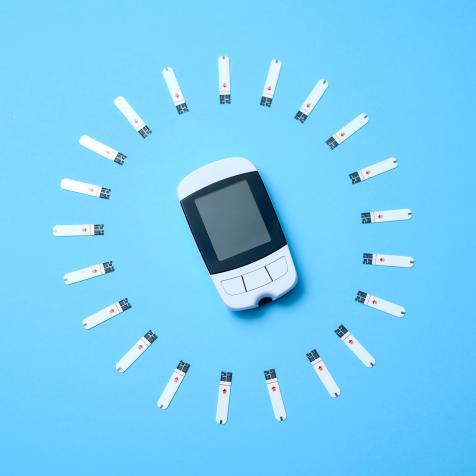
Curiosity Daily Podcast: Criminal Profiling Doesn’t Work, Exoplanets’ Magma Oceans Eat Their Skies, and Superhuman Red Blood Cells for Drug Delivery
Learn about why criminal profiling doesn’t seem to work in real life; planets with oceans of molten rock that basically eat the sky; and superhuman red blood cells that could be used to deliver life-saving drugs.
February 05, 2020
Episode Show Notes:
Criminal Profiling Probably Doesn’t Work by Kelsey Donk
- MacMillan, T. (2017, October 20). Can Criminal Profilers Really Get Inside the Head of a Killer? Vulture; Vulture. https://www.vulture.com/2017/10/mindhunter-criminal-profiling-really-work-like-this.html
- Matthews, D. (2018, November 12). Criminal Minds, Mindhunter: criminal profiling doesn’t work. Vox; Vox. https://www.vox.com/future-perfect/2018/11/12/18044688/criminal-profilers-mindhunter-hannibal-criminal-minds
- Gladwell, M. (2007, November 4). Dangerous Minds. The New Yorker; The New Yorker. https://www.newyorker.com/magazine/2007/11/12/dangerous-minds
- Snook, B., Cullen, R. M., Bennell, C., Taylor, P. J., & Gendreau, P. (2008). The Criminal Profiling Illusion. Criminal Justice and Behavior, 35(10), 1257–1276. https://doi.org/10.1177/0093854808321528
- Snook, B., Eastwood, J., Gendreau, P., Goggin, C., & Cullen, R. M. (2007). Taking Stock of Criminal Profiling. Criminal Justice and Behavior, 34(4), 437–453. https://doi.org/10.1177/0093854806296925
Some Exoplanets’ Magma Oceans Eat Their Skies by Grant Currin
- Mission overview. (2011). NASA. https://www.nasa.gov/mission_pages/kepler/overview/index.html
- Lerner-Chicago, L. (2019, December 27). Exoplanets with magma oceans may “eat” their own skies - Futurity. Futurity. https://www.futurity.org/exoplanets-magma-oceans-2241842/
- Kite, E. S., Bruce Fegley Jr., Schaefer, L., & Ford, E. B. (2019). Superabundance of Exoplanet Sub-Neptunes Explained by Fugacity Crisis. The Astrophysical Journal, 887(2), L33. https://doi.org/10.3847/2041-8213/ab59d9 / https://arxiv.org/pdf/1912.02701.pdf
Superhuman Red Blood Cells for Drug Delivery by Cameron Duke
- Special delivery: McMaster physicists design ‘super-human’ red blood cells to deliver drugs to specific targets within the body. (2020). Mcmaster.Ca. https://brighterworld.mcmaster.ca/articles/special-delivery-mcmaster-physicists-design-super-human-red-blood-cells-to-deliver-drugs-to-specific-targets-within-the-body/
- Himbert, S., Blacker, M. J., Kihm, A., Pauli, Q., Khondker, A., Yang, K., Sinjari, S., Johnson, M., Juhasz, J., Wagner, C., Stöver, H. D. H., & Rheinstädter, M. C. (2020). Hybrid Erythrocyte Liposomes: Functionalized Red Blood Cell Membranes for Molecule Encapsulation. Advanced Biosystems, 1900185. https://doi.org/10.1002/adbi.201900185
Subscribe to Curiosity Daily to learn something new every day with Cody Gough and Ashley Hamer. You can also listen to our podcast as part of your Alexa Flash Briefing; Amazon smart speakers users, click/tap “enable” here: https://curiosity.im/podcast-flash-briefing
Next Up
Curiosity Daily Podcast: Romanesco Fractals, Dolphin Names & Evolution vs. Mating
Learn about evolutionary compromises; the fractals of Romanesco cauliflower; and dolphins that learn each other’s names.
Curiosity Daily Podcast: 16 Psyche, Xenotransplantation, Ocean Waves Become a Rave
Today, you’ll learn about a metallic object in space that might be worth seven hundred quintillion dollars, how genetically engineered pig hearts could save tons of human lives, and how bioluminescent waves are putting on trippy light shows in the world’s oceans.
Curiosity Daily Podcast: Pee and Seagrass, Heart Sound Maps, Modified Mosquitos
Today we talk about how crystallizing human urine can help save seagrass, a new AI program that can detect early signs of heart disease, and how mosquitos can be used to vaccinate against malaria.
Curiosity Daily Podcast: “Breaking the Seal” Myths, Dine Under the Sea in the Maldives, and Tardigrade Superpowers
Learn about how researchers could tap into a tardigrade superpower to protect medicines and vaccines; the Ithaa Undersea Restaurant in the Maldives where you can dine with the fishes; and whether “breaking the seal” is a real thing when you’re drinking.
Curiosity Daily Podcast: Alan Alda on How to Communicate Better by Making Connections (Plus: Why Oceans Don’t Sink)
Alan Alda talks to Curiosity Daily hosts Cody Gough and Ashley Hamer about how to be a better communicator by making human connections. Plus, learn about why oceans don’t sink into the Earth.
Curiosity Daily Podcast: Explorers Club - Natalie Schmitt
Today, we are continuing our Explorers Club series today with a very special guest, Dr. Natalie Schmitt. Dr. Schmitt can do it all - really. She’s not only a conservation geneticist, but she’s a marine ecologist and documentary host.
Curiosity Daily Podcast: Cultivate Green Space in Your Home (w/ Summer Rayne Oakes) and Brains of Octopus Arms
Learn about how octopus arms literally have minds of their own; and, the benefits of having plants and how to get started, with environmental scientist and author Summer Rayne Oakes.
Curiosity Daily Podcast: Using Lava Lamps to Generate Randomness (w/ Matt Parker), How Ritalin Makes You Focus, and What Bacteria Beneath the Sea Floor Means for Life on Mars
Learn about how drugs like Ritalin and Adderall actually make you “focus,” how tech companies are using lava lamps to make computers more secure, and why new life discovered at the bottom of the ocean opens up new possibilities for finding life on Mars.
Curiosity Daily: Neanderthal Roommates, Sea Dragons, Hidden Egyptian
Hear about a new archeological site that suggests humans arrived in Europe 10,000 years earlier than previously thought, what a giant fossil could teach us about the fearsome sea dragon, and a massive archeological find in Egypt!
Curiosity Daily Podcast: Hot Testes, Blasting Diabetes, Robo Fish Cleans Ocean
Come along with us to figure out how heating up testicles could be an effective male contraceptive, how ultrasounds might help us cure Type 2 diabetes, and how a robotic fish might soon clean our oceans.













